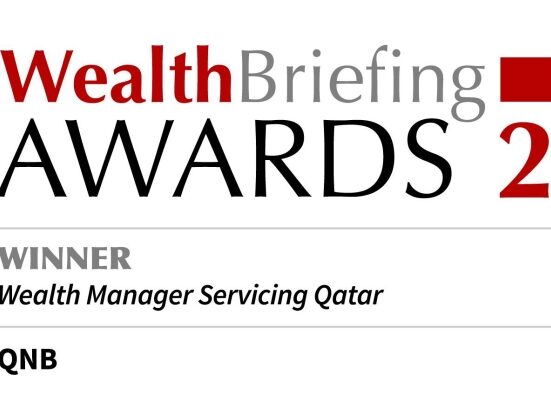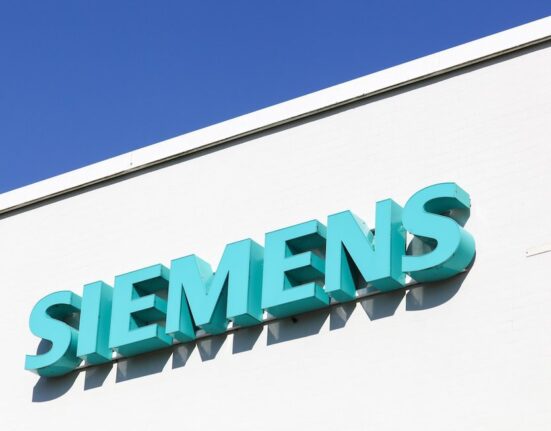New York hedge fund Saba Capital has further topped up its holdings in London investment trusts in recent days, with 10 declarable stakes above 5% at present.
Today its stake in BlackRock Smaller Companies Trust PLC was revealed to have been hiked to 11.2%, up from 10.2% when the holding was first declared just over a month ago.
Based out of New York’s art deco Chrysler Building, the $4.4 billion hedge fund manager is led by Boaz Weinstein, former co-head of global credit trading at Deutsche Bank, where he first led a ‘prop trading’ team that was later spun out as Saba, with several of its funds focused on the strategy of finding value in closed-ended vehicles.

Saba chief Boaz Weinstein (Photo: Saba Capital)
Aside from the Blackrock trust, Weinstein and his team have also this month revealed stakes in two other London-listed closed-ended investment companies: Keystone Positive Change Investment Trust PLC and Edinburgh Worldwide Investment Trust PLC, at 10% and 11% respectively.
This makes brought it to a round 10, though analysts said it was quite possible there are more stakes below the declarable 5%.
Last month Saba was reported to have around £500 million to invest in London listed investment trusts, broker Stifel noted.
Saba has not been shy either, having also published two open letters to the board of the European Opportunities Trust PLC (LSE:JEO), which is managed by Devon Equity Management, calling for measures to return capital to shareholders and enhance shareholder value ahead of its continuation vote which is due on Wednesday.
The most letter recent came after the EOT’s board proposed a tender offer for up to 25% of the shares, priced at the prevailing net asset value at the time. https://www.londonstockexchange.com/news-article/EOT/tender-offer/16196542
Saba proposed a 50% tender offer and calling for investors to reject the continuation offer, saying in the letter that, “for over a decade, our firm, Saba Capital, has been fighting for the interests of shareholders in closed-end funds and investment trusts. We have negotiated dozens of shareholder-friendly corporate actions (i.e., tenders, restructurings, discount management plans) in funds like EOT, whose shareholders have suffered from sustained underperformance and prolonged discounts to net asset value.
“In our experience, when a fund proposes a modest tender offer instead of taking more significant action, it raises significant concerns,” it said, adding that following the proposed 25% tender, “the share price would then fall and the discount to NAV would grow to at least -15% – a level common in UK investment trusts that do not have a continuation vote”.
EOT’s response was that this was pure “conjecture”.
Analyst Iain Scouller at Stifel pointed out that Saba’s positions that have been declared to date are “all in investment trusts that primarily invest in listed equities”.
“We think this reflects a strategy of hedging (i.e shorting) the underlying company exposure in the trusts, possibly by shorting individual holdings or equity indices, maybe using ETFs as a proxy for these portfolios.”
Saba’s presumed plan is for the discounts on its trust investments to either narrow following tender offers or from pressure for action from shareholders, or tighten in the market as new investor demand comes in, possibly as a sector becomes in-favour with a wider array of investors again.
“The focus on trusts investing in listed equities creates a bit of a conundrum as the discounts on these are relatively narrow, compared with the discounts on the funds investing in alternative assets e.g. renewables, music royalties and private equity,” Scouller said.
“However, given these funds are at best ‘difficult’ to hedge reliably, we expect Saba’s focus will continue to be on trusts investing in listed equities.”
He also noted that anyone who’s been following trusts for a while will remember some of the battles with activist investors in the past, such as the aggressive Sierra Trading, as well as Laxey, Millennium and Carrousel, which all moved on after either buybacks and other corporate actions, or had to sell down in the market in order to return cash to their underlying investors.
EOT is predicted by Stifel to win its continuation vote, based on the offer of a performance related tender in 2026 and a 25% tender at a 2% discount to NAV in early 2024.
However Stifel’s Scouller is sceptical about the activist’s chances of success across its portfolio of London trust investments.
While discounts of some Saba stakes have widened in recent weeks, “we doubt they are at the levels where many shareholders will be tempted to look for a cash-exit at the present time and, even if Saba start requisitioning for tenders and other reorganisations, we think they may struggle to get much support from long-term shareholders”, he said.
Saba may have “disproportionate influence” in some trusts though, the analyst added – notably those with a high proportion of private client investors, “especially the ‘man in the street’ who may not have interest in voting, or indeed have knowledge that a vote is upcoming”.
In such cases, he said Saba’s 10%-plus stakes “could have a disproportionate influence over votes, if there is a low voter turnout, and perhaps they will be more successful in forcing through change, than at first appears likely”.
Trust – sector – Saba stake – discount – discount range 1yr – Avg discount 1yr – Continuation vote
Baillie Gifford US Growth 5.1% 20% 10-25% 19% None
BlackRock Smaller Cos 11.2% 11/10/23 12 11-15% 13% None
CQS Natural Resources 5.0% 20/09/23 16 8-20% 15% Dec 23
Edinburgh Worldwide 11.0% 01/11/23 14 6-23% 17% None
European Opportunities 5.0% 07/09 23 9-15% 12% 15/11/23
Henderson Opportunities 5.1% 16/05 22 17 7-20% 14% 2026
Herald 10.1% 23/10/23 15 10-17% 15% 2025
JPM European Discovery 12.0% 06/10/23 13 9-17% 14% None
Keystone Positive Change 10.0% 08/11/23 18 10-18% 15% None
Schroder UK Mid Cap 5.7% 29/09/22 13 10-16% 13% None






